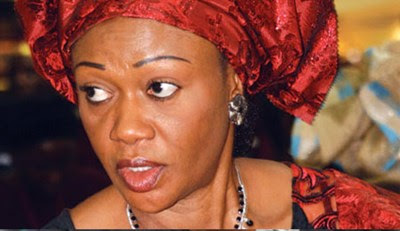“Issues of health are not political; I stand to agree and to disagree. It’s political because, maybe, the previous administration did not do what they were supposed to do. “And now we have the challenge, are we going to do the right thing? So, it’s a challenge for this administration; the President Muhammadu Buhari’s administration. We must do the right thing for our people, our people deserve the best,” Tinubu said. Also speaking, the Minister of Health, Prof. Isaac Adewole, said government is to assist non-government organisations working in Nigeria to report their spending once every three months, while civil society groups will report how they work in hospitals. The minister who was represented by the ministry’s Director of Family Health, Dr Balami Wapada said that that ministry will “issue templates for NGOs to report on their spending on health on a quarterly basis” adding that such reporting “will bring in accountability and using resources more efficiently.”
He explained that civil society groups will also be mandated to report on their activities in Nigerian hospitals, so as to track service delivery, and if necessary improve on services being rendered. United Nations Population Fund’s representative in Nigeria, Ratidzai Ndhlovu also stressed that accountability for maternal health will require “periodic and transparent dissemination of key results particularly on maternal mortality and its discussion with stakeholders.” Meanwhile, the Nigerian Medical Association (NMA) and some civil society organiations have challenged the federal government to ensure transparency in the implementation of the 2016 health budget. This was part of the resolutions reached at the end of a workshop on 2016 budget with regards to healthcare, organised by the Partnership for Advocacy in Child and Family Health (PACFaH).
NMA President, Dr Lawrence Obembe, said: “There are lot of loopholes, lacunas deficiency in the 2016 health budget, we also know that the percentage is very low, it’s about 3.7 per cent. Nigeria’s commitment is supposed to be 15 per cent.” Obembe also called for strengthening of health care financing as a way to address various health challenges in the country. But in a communique at the end of the workshop signed by Chairman of the ocassion, Prof. Ben Anyene and PACFaH National Coordinator, Dr Judith-Ann Walker, they observed that the “prospects and opportunities for domestic mobilising for health financing of the 2016 budget compliance with inherited and new international obligations in the health sector- benefits and challenges” are the key to attaining set goals in the sector.
They called for “adequate funding in the context of the deficit financing- the best arguments for the health sector advocate. Tracking timely releases, value for money and cost effectiveness of the health budget after releases-most effective strategies “Health financing is challenged by dwindling revenue, poor fiscal management of resources and weak private sector financing. The 2016 health sector budg They also maintained that “the framework and guideline for implementation of the National Health Act 2014 is yet to be put in place, including the non-recognition of the provisions of the 2014 National Health Act in the 2016 budget proposal. “The absence of budgetary provisions for key and essential line items like child and family health, service wide votes have not been disaggregated for many line items in the 2016 health budget. Example is the allocation for the MDGs and SDGs,” they observed.
Source: This Day Live

 The Senator representing Lagos Central senatorial district and wife of the national leader of the All Progressives Congress (APC), Senator Oluremi Tinubu, Tuesday said the current poor indexes in child and maternal health in the country is a challenge to the administration of President Muhammadu Buhari.
The Senator representing Lagos Central senatorial district and wife of the national leader of the All Progressives Congress (APC), Senator Oluremi Tinubu, Tuesday said the current poor indexes in child and maternal health in the country is a challenge to the administration of President Muhammadu Buhari. 




